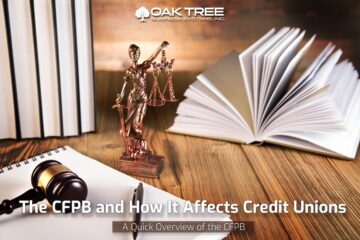
Credit unions stand as a community-driven financial industry that is owned by members and supports the growth and economy of the field of membership, as well as geographical areas. Two main functions are holding money and data secure and providing lending services to members. These pillars of responsibility are at risk when outstanding debt becomes a problem. We will look at the issues of data security and tips for safe credit union collections.
With Americans borrowing at an increasing rate, debt ratios are excessively growing. According to Debt.org, “Total U.S. consumer debt is at $13.86 trillion. That includes mortgages, auto loans, credit cards, and student loans.” This points to a lot of collection as well as debt consolidation, which credit unions will need trust and finesse to accomplish.
A big point of consideration is the trust built between institutions and members. Members go into lending procedures with credit unions after conversing with staff and receiving knowledge and advice as to what lending options are available and right for them. After taking advice and choosing a lending service, the event of non-payment and retrieval puts a strain on an otherwise pleasant and trusting relationship.
A relationship with members is definitely a two-sided street. Employees have the opportunity to assess each lending contract individually and create appropriate pathways to solutions on a case-by-case, member-by-member basis. This takes a more in-depth and timely process of analysis and provides the best possible customer service for special consequences and situations.
Breaking trust is a member/credit union relationship that affects member loyalty and referrals. It’s not likely that a member would take out a loan knowing it will become delinquent, as life events cannot be expected or determined. What a credit union can put into place is tighter lending guidelines and the lessening of long-term loans. It is possible to handle collections gently and with efficiency, but this requires account care and attention. This is a good opportunity to assess delinquent accounts, as well as representative account workloads, and determine necessary expansion or outsourcing.
The second point of consideration is the chance of data breach and the security of information in correlation to members, owners, and stakeholders. Any breach of data protection promises immediately instills doubt and insecurity among members and increases the unlikeliness of returning to use services. Keeping data secure in a world ridden with fraud, scams, and theft in the digital realm is a difficult feat, particularly when combined with debt collection.
According to weforum.org, Cyberattacks are in the top 10 biggest risks facing the world! With over 4.1 billion records exposed within the first 6 months of 2019 (forbes.com), data is at risk in a growing digital world! The safety of your members’ data is not the only concern to think about, as there is a pecuniary risk as well with the global average cost of a data breach being $3.9 million (IBM). This security threat takes away from collections departments and other functioning aspects of your credit union… like compliance!
According to OptioSolutions.com, “key federal regulations relating to consumer debt collection include the Fair Debt Collection Practices Act (FDCPA), Telephone Consumer Protection Act (TCPA), Fair Credit Reporting Act (FCRA), and Health Insurance Portability and Accountability Act (HIPAA). These laws work to safeguard data and prohibit invasive and aggressive collection methods.” These keep compliance and security in order, for all operations of credit unions and collection departments of companies, especially during your COVID-19 marketing strategy.
The digital age continues to innovate and expand, and so do threats of fraud, spam, and hacks. Keeping up with security measures to protect information can present a priority when budgeting per quarter or year. Member information should be of utmost importance to trusted financial institutions. Focusing on securing databases and applying physical and digital security measures should be first and foremost, before department expansion. If budgeting does not allow for a genuine improvement in both, then focus on security and look toward outsourcing collections.
Using a third-party source is a great solution for credit unions looking to maintain their essential pillars, without any cracks weakening the integrity of the institution. Credit unions put a lot of effort into creating bonds with their members and producing revenue for the institution, and collections can create cracks in many situations. Using a third-party collector puts compliance and security in a separate entity where compliance for collections is ever-changing and security is ever-tightening.
Oak Tree works with compliance in all areas of credit union operations and can help your credit union find the right solution to keep your institution strong with trusted members.
Oak Tree is still here successfully experiencing unimpaired operations and plans to continue to do so. During these challenging times, it’s important to know that you can rely on Oak Tree as a trustworthy partner to keep your forms & disclosures compliant and prepared for any new challenges. Questions? We’re here at (800) 537-9598.


